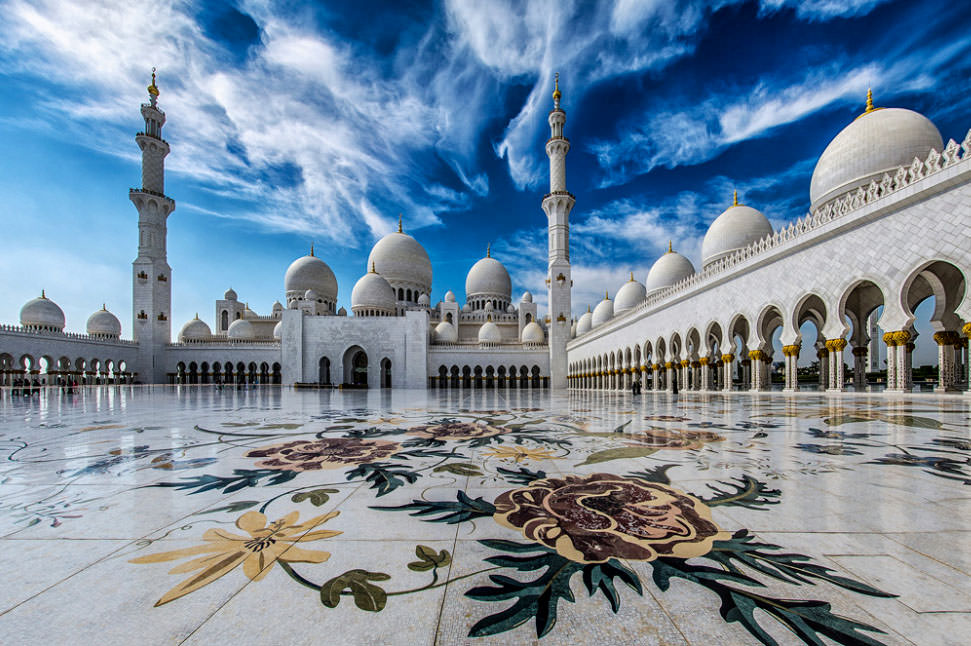Understanding Islam: An Introduction to the Religion of Peace
Islam is a religion that has more than 1.8 billion followers worldwide, making it the second-largest religion in the world after Christianity. Despite its popularity, many people still have misconceptions and misunderstandings about this religion. This article aims to provide a brief introduction to Islam, its history, beliefs, and practices.
Origins of Islam
Islam was founded by the prophet Muhammad in the 7th century in the Arabian Peninsula. According to Islamic tradition, Muhammad received revelations from Allah (God) through the angel Gabriel. These revelations were later compiled into the holy book of Islam, the Quran. Muhammad began preaching the message of Islam in Mecca but faced opposition from the city's ruling elites. He later migrated to Medina, where he established the first Islamic community.
Beliefs of Islam

Muslims believe in one God, Allah, who is the creator of the universe and all that is in it. They believe that Allah is merciful and just and that he has sent prophets to guide humanity throughout history. The most important of these prophets is Muhammad, who is considered the last prophet of Islam. Muslims also believe in the Day of Judgment, when all souls will be judged according to their deeds.
Practices of Islam
The Five Pillars of Islam are the basic practices that every Muslim is expected to follow:
-
Shahada: declaration of faith in one God and the prophethood of Muhammad.
-
Salat: daily prayer, performed five times a day.
-
Zakat: giving of alms to the poor and needy.
-
Sawm: fasting during the month of Ramadan.
-
Hajj: a pilgrimage to the holy city of Mecca at least once in a lifetime, if physically and financially able.
Islamic Law
Islamic law, also known as Shariah, is derived from the Quran and the Sunnah (the practices and teachings of Muhammad). It covers all aspects of life, including family law, criminal law, and financial transactions. Islamic law is implemented differently in different countries, with some countries adhering to traditional interpretations and others incorporating modern developments.
Misconceptions about Islam
Islam is often associated with terrorism, extremism, and oppression, but these associations are not accurate. The vast majority of Muslims are peaceful and law-abiding citizens who reject violence and extremism. Furthermore, Islam promotes equality, justice, and compassion toward all people, regardless of their race, gender, or religion.
how islam is the best religion?

Islam is the second-largest religion in the world and has over 1.8 billion followers. It is based on the teachings of the Prophet Muhammad and the holy book, the Quran. Islam is often misunderstood by non-Muslims, and this has led to misconceptions and stereotypes about the religion.
Islam is a religion of peace and compassion
-
One of the central principles of Islam is peace. Muslims are taught to be kind, compassionate, and respectful towards others. The Quran teaches that there is no compulsion in religion and that Muslims should treat non-Muslims with respect and kindness.
Islam emphasizes the importance of family
-
Family is an essential part of Islamic life. Muslims believe that the family is the foundation of society and that it is the responsibility of parents to provide for their children and teach them the principles of Islam. Muslims also believe that marriage is a sacred bond between a man and a woman.
Islam promotes equality
-
Islam teaches that all human beings are equal in the eyes of God. Muslims believe that race, nationality, and social status do not determine a person's worth. The Quran teaches that the best among people are those who are the most righteous and pious.
Islam encourages education
-
Muslims believe that education is essential and that seeking knowledge is a lifelong process. The Prophet Muhammad himself emphasized the importance of seeking knowledge and education. In Islamic culture, scholars and educators are highly respected.
Islam has a strong sense of community
-
Muslims believe in the importance of community and helping others. Muslims are encouraged to give to charity, and the concept of zakat (giving of alms) is an essential part of Islamic life. Muslims are also encouraged to pray together in mosques and to support each other in times of need.
Islam is a religion that emphasizes peace, compassion, equality, education, and community. While there are many religions in the world, Islam has a unique set of principles and values that make it stand out. Muslims believe that Islam is the best religion because it provides a path to a meaningful and fulfilling life, both in this world and the hereafter.
How Islam Guides Us About Living Life

Introduction:
Islam is a complete way of life that provides guidance on how to live a balanced and fulfilling life. It offers a comprehensive set of principles and practices that promote physical, emotional, and spiritual well-being. In this article, we will explore how Islam guides us about living life and how it can help us achieve success and happiness in this world and the hereafter.
The Importance of Balance in Life:
Islam emphasizes the importance of balance in all aspects of life. Muslims are encouraged to strike a balance between their religious and worldly pursuits. The Quran teaches us that life is a test, and we must strive to achieve a balance between our spiritual and material goals.
The Importance of Family and Community:
Islam recognizes the importance of family and community in shaping a person's identity and character. It teaches us to treat our family members with kindness and respect and to be actively involved in our communities. Muslims are encouraged to support one another and work together to build strong, cohesive communities.
The Importance of Seeking Knowledge:
Islam places a great emphasis on seeking knowledge. The Prophet Muhammad (peace be upon him) said, "Seeking knowledge is obligatory upon every Muslim." Muslims are encouraged to pursue education and to seek knowledge in all areas of life, including science, technology, and the arts.
The Importance of Good Character:
Islam teaches us the importance of good character and moral behavior. Muslims are encouraged to be honest, trustworthy, and kind to others. The Prophet Muhammad (peace be upon him) said, "The most beloved of people to Allah are those who are the most beneficial to others."
The Importance of Worship:
Islam teaches us that worship is an essential part of our daily lives. Muslims are required to pray five times a day, fast during the month of Ramadan, give charity to those in need, and perform the pilgrimage to Makkah (Hajj) if they are able to do so. These acts of worship help Muslims to maintain a strong connection with Allah and to cultivate a sense of humility and gratitude.

CONCLUSION:
Islam offers a comprehensive set of principles and practices that guide us on how to live a balanced and fulfilling life. By emphasizing the importance of balance, family, and community, seeking knowledge, good character, and worship, Islam provides a roadmap for success and happiness in this world and the hereafter. By following these teachings, Muslims can strive to become better individuals and make a positive impact on the world around them.


You must be logged in to post a comment.